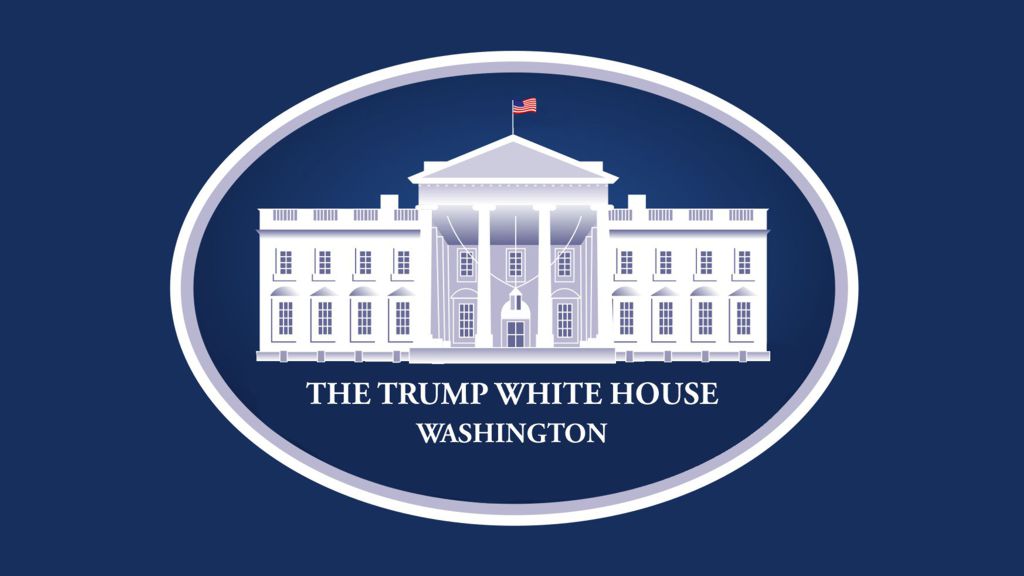By the authority vested in me as President by the Constitution and the laws of the United States of America, and to improve transparency with respect to the consequences of violating certain regulations and to protect Americans from facing unwarranted criminal punishment for unintentional violations of regulations, it is hereby ordered as follows:
Section 1. Purpose. In the interest of fairness, Federal criminal law should be clearly written so that all Americans can understand what is prohibited and act accordingly. Some statutes have authorized executive branch agencies to promulgate thousands of regulations, creating a thicket of requirements that can be difficult to navigate, and many of these regulations are enforceable through criminal processes and penalties. The purpose of this order is to alleviate regulatory burdens on Americans by ensuring that they have notice of potential criminal liability for violations of regulations and by focusing criminal enforcement of regulatory offenses on the most culpable individuals.
Sec. 2. Policy. It is the policy of the Federal Government that:
(a) Agencies promulgating regulations that may subject a violator to criminal penalties should be explicit about what conduct is subject to criminal penalties and the mens rea standard applicable to those offenses;
(b) Strict liability offenses are “generally disfavored.” United States v. United States Gypsum, Co., 438 U.S. 422, 438 (1978). Where appropriate, agencies should consider administrative or civil enforcement of strict liability regulatory offenses, rather than criminal enforcement of such offenses; and
(c) Criminal prosecution based on regulatory offenses is most appropriate for those persons who know what is prohibited or required by the regulation and choose not to comply, thereby causing or risking substantial public harm. Criminal prosecutions based on regulatory offenses should focus on matters where a putative defendant had actual or constructive knowledge that conduct was prohibited.
Sec. 3. Definitions. For the purposes of this order:
(a) “Agency” has the meaning given to “Executive agency” in section 105 of title 5, United States Code.
(b) “Mens rea” means the state of mind that by law must be proven to convict a particular defendant of a particular crime. There are several such mental states in the law applied by Federal courts. Two common mental states are “knowingly” and “willfully.” A defendant acts “knowingly” with respect to an element of the offense if he or she has knowledge of the essential facts comprising that element. In addition, a defendant “willfully” violates a statute if he or she acts with a “bad purpose” that is with “knowledge that his [or her] conduct is unlawful.” Model Criminal Jury Instructions (3d Cir. 2018), ch. 5, sec. 5.02 cmt. (quotation marks omitted). By contrast, strict liability offenses do not require the government to prove mens rea. For instance, the jury instructions for the United States Court of Appeals for the Third Circuit note that “[s]ome federal crimes are also strict or absolute liability offenses, without any mental state requirement.” Id. at ch. 5, General Introduction to Mental State Instructions.
(c) “Person” has the meaning given it in section 1 of title 1, United States Code.
(d) “Regulatory offense” means any violation of a regulation promulgated by an agency.
Sec. 4. Promoting Regulatory Transparency. (a) All notices of proposed rulemaking (NPRMs) and final rules published in the Federal Register after issuance of this order should include a statement that describes whether individuals who violate any of the prohibitions — or fail to comply with any requirements — imposed by the regulation or rule may be subject to criminal penalties. Agencies should draft this statement in consultation with the Department of Justice. For purposes of this order, a regulation is treated as subjecting individuals to criminal penalties when violation of the regulation is itself a basis for criminal liability under Federal law.
(b) The regulatory text of all NPRMs and final rules with criminal consequences published in the Federal Register after issuance of this order should, consistent with applicable law, explicitly state a mens rea requirement for each such provision or identify the provision as a strict liability offense, accompanied by citations to the relevant provisions of the authorizing statute.
(c) Prior to publishing in the Federal Register an NPRM or final rule that contains a regulatory offense not specifically articulated in the authorizing statute that may subject a violator to potential criminal liability with no mens rea requirement or a regulatory offense that includes an element that does not require proof of mens rea (excluding jurisdictional and venue elements), the applicable agency should submit a brief justification for use of a strict liability standard as well as the source of legal authority for the imposition of such a standard, to the Administrator of the Office of Information and Regulatory Affairs in the Office of Management and Budget (Administrator). In response to these agency submissions, the Administrator shall provide implementation guidance to agencies on this order, monitor agency regulatory actions pursuant to this order, and advise agencies if their actions are inconsistent with the principles set forth in this order and or otherwise conflict with the policies or actions of another agency. After such consultation, a statement of justification should be published in the Federal Register with the NPRM and the final rule.
Sec. 5. Agency Referrals for Potential Criminal Enforcement. (a) Within 45 days of the date of this order, and in consultation with the Department of Justice, each agency should publish guidance in the Federal Register describing its plan to administratively address regulatory offenses subject to potential criminal liability rather than refer those offenses to the Department of Justice for criminal enforcement. Such guidance should make clear that when agencies are enforcing regulations related to statutory criminal violations subject to strict liability, and deciding whether to refer the matter to the Department of Justice, agencies should consider factors such as:
(i) the harm or risk of harm, pecuniary or otherwise, caused by the alleged offense;
(ii) the potential gain to the putative defendant that could result from the offense;
(iii) whether the putative defendant held specialized knowledge, expertise, or was licensed in an industry related to the rule or regulation at issue; and
(iv) evidence, if any is available, of the putative defendant’s knowledge or lack thereof of the regulation at issue.
(b) Notwithstanding these considerations, the guidance should not deter, limit, or delay agency referrals to the Department of Justice where either the putative defendant’s state of mind is unknown because further investigation is required, or there exists a reasonable indication that a crime has been committed based on the evidence available.
(c) When required by internal agency policies or practice, an agency may refer alleged regulatory offenses carrying potential criminal consequences to its designated investigation and law enforcement offices for investigation of the viability of the charge, subject to the guidance described in 5(a) of this order governing referral of regulatory offenses subject to strict liability.
Sec. 6. General Provisions. (a) Nothing in this order shall be construed to impair or otherwise affect:
(i) the authority granted by law to an executive department or agency, or the head thereof; or
(ii) the functions of the Director of the Office of Management and Budget relating to budgetary, administrative, or legislative proposals.
(b) This order shall be implemented consistent with applicable law and subject to the availability of appropriations.
(c) Notwithstanding any other provision in this order, nothing in this order shall apply:
(i) to any action that pertains to foreign or military affairs, or to a national security or homeland security function of the United States (other than procurement actions and actions involving the import or export of non-defense articles and services);
(ii) to any action that the Department of Justice takes related to a criminal investigation or prosecution, including undercover operations, or any civil enforcement action or related investigation by the Department of Justice, in addition to any action related to a civil investigative demand under 18 U.S.C. 1968;
(iii) to any action related to counterfeit goods, pirated goods, or other goods that infringe intellectual property rights, or goods that are adulterated or misbranded, or goods for which regulatory approval was required prior to distribution but not obtained;
(iv) to strict liability misdemeanor prosecutions concluded via plea agreement;
(v) to any investigation of misconduct by an agency employee or any disciplinary, corrective, or employment action taken against an agency employee; or
(vi) in any other circumstance or proceeding to which application of this order, or any part of this order, would, in the judgment of the head of the agency, undermine the national security.
(d) This order is not intended to, and does not, create any right or benefit, substantive or procedural, enforceable at law or in equity by any party against the United States, its departments, agencies, or entities, its officers, employees, or agents, or any other person.
DONALD J. TRUMP
THE WHITE HOUSE,
January 18, 2021.








